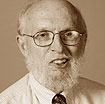Commentary on Acts 2:1-21
It is fine to preach on this text as the story of the birthday of the church. We want to remember, however, that for Luke the church is not the end of the story.
The church is the vanguard of the Kingdom, of the realm of God that is both coming and yet to come. When Peter preaches on Pentecost he changes slightly the quotation from the prophet Joel. In the Septuagint, the Greek translation of the Hebrew Bible, Joel says: “After these things, I will pour out my Spirit upon all flesh.” (Septuagint, Joel 3:1) Luke, through Peter, makes clear that what is happening at Pentecost is the beginning of the great time when God brings all of human history to consummation–in Jesus Christ. “In the last days, it will be, God declares, I will pour out my Spirit upon all flesh.”
The whole great drama of the two volume book–Luke and Acts–is the story of God’s Spirit as the sign of the end of the times. At the beginning of his ministry Jesus stands in the synagogue and reads Isaiah 61. “The Spirit of the Lord is upon me, because he has anointed me to bring good news to the poor.” Jesus’ ministry begins with the gift of the Spirit, not for the sake of the church but for the sake of the world. The church’s ministry begins with the gift of the Spirit, not for the sake of the church, but for the sake of the world.
Notice that at the beginning of both ministries, that of Jesus and that of the church, Luke shows us how deeply grounded the new covenant is in the old. Jesus cannot explain his ministry without turning to Isaiah. Peter cannot explain what Pentecost means without turning to Joel. The understanding of the relationship of the growing church to Judaism in Luke and Acts is a much disputed issue. What cannot be disputed is that neither Jesus nor church is comprehensible apart from Israel’s story and Israel’s hope.
Our text is often read and preached in connection with the story of the Tower of Babel in Genesis 11:1-9. In that story we remember God confused and diversified human languages so that the whole earth no longer “had one language and the same words.” Presumably this is God’s punishment for the human pretension and pride that built the tower. Notice, however, that Pentecost does not really reverse Babel. It is not the case, that at the end of Pentecost all the earth–or even all believers–have one language and the same words. The miracle of Pentecost is that even though there are still many languages and diverse words people are able to understand each other. It is a misreading of the story to think that God’s promise for the church is a kind of ecclesiastical Esperanto–a universal language we all can speak and understand. The apostles speak a variety of languages so that a variety of people can hear. God’s promise for the church is that in our diversity, through our diversity, the Spirit still leads us forward in understanding. If Eden was a “happy fall” because it made possible our redemption, maybe Babel was a happy fall because it enriched our diversity–the languages in which we can preach the Gospel and praise God.
Professor Lamin Sanneh of Yale Divinity School grew up as a Muslim and converted to Christianity. He has great appreciation for both faiths, but he has pointed out that Christianity, unlike Islam, believes in the translation of our sacred texts. The Q’ran is really the Q’ran only in Arabic. The Bible is the Bible whether in Hebrew and Greek or in English or French or Hindi. That is a gift of the Spirit.
We also notice, though, that when the first believers speak in diverse languages but say the same thing, they do not deliver speeches praising diversity. Diversity is a blessed feature of the Christian life but it is not the center of that life. What they speak about is “God’s deeds of power.” (Acts 2:11) There is a tendency among American Christians to bring diverse people together to praise our diversity. The model we get in Acts is that we bring diverse people together to praise God.
When Peter preaches about the miracle that people have observed (trying to defend his friends against the accusation that they have been drinking too much) what he talks about is not the splendor of the congregation but the majesty of God. It is God’s Spirit that makes this day possible. The day is not the church’s day; it is “the coming of the Lord’s great and glorious day.”(Acts 2:20) The purpose of the day is not to congratulate each other but to repent and believe: “Then everyone who calls on the name of the Lord will be saved.” (Acts 2:21)
This is not the last word on the spread of the Gospel in the book of Acts. Here we have the Gospel proclaimed and enacted among Jews from every nation and of every tongue. But the story goes on: in Acts 8, Philip interprets scripture to the Ethiopian eunuch. In Acts 9, a Jewish leader named Saul is overpowered on the road to Damascus and recruited–though he does not yet know it–to spread the Gospel to the Gentiles. In Acts 10, Peter’s vision of God’s vision grows enormously. When God gives him the compelling dream of the sheet filled with creatures of all kinds, Peter realizes that Pentecost is for people of all kinds. He has to rethink his own sermon on Joel. When God says “in the last days I will pour out my Spirit upon all flesh,” God means all flesh.” The church grows and spreads and among all peoples serves the coming Reign of God.

May 11, 2008